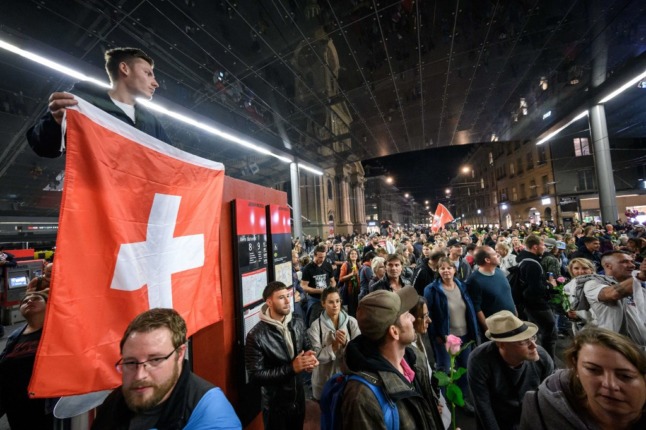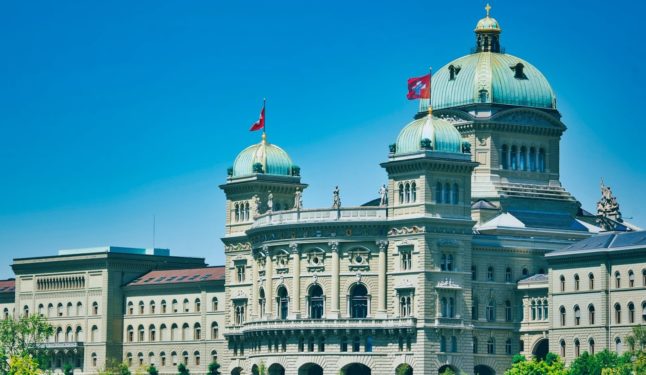The issue of government’s role in managing the pandemic has been stirring much controversy in Switzerland, leading to a second referendum on this issue in the span of four months.
The Covid Act, which grants the federal government broad powers to manage the pandemic, was already passed by a previous referendum on June 13th.
On Sunday, the voters are called to weigh in on the version of the law revised by parliament on March 19th relating to the Covid certificate, which Switzerland started to issue on June 7th to people who have been fully vaccinated, recovered from coronavirus, or tested negative for the disease.
READ MORE: What’s at stake in Switzerland’s Covid referendum on November 28th?
Supporters of the law, including most political parties as well as the Federal Council, say the certificate requirement makes it possible to avoid closures and bans in the event of a new outbreak of the pandemic, and lessens the pressure on the health care system.
In addition, the certificate is essential for travel abroad.
Opponents, on the other hand, claim the certificate requirement that is currently in place until at least January 24th, 2022, creates discrimination and division within society, implicitly forcing vaccination and “state access to our body”.
Even though the opponents have stepped up their campaign in recent weeks by demonstrating in the streets in cities across Switzerland, it appears that their cause will not win the majority of votes at the ballot box.

This is what the latest polls show
Supporters of the Covid law are maintaining a stable and comfortable lead, with more than 60 percent of voters in favour of the legislation, according to a survey published by Swiss Broadcasting Corporation last week.
A similar result comes out of a poll released by Tamedia media group in mid-November: 68 percent of respondents said they are in favour of the law, while 31 percent are against.
“If you break it down by various parties, you get a very clear picture”, Tamedia said, pointing out that the smallest proportion of supporters, 36 percent, are in the right-wing Swiss People’s Party (SVP) .
All the other parties are clearly in favour of the law: 74 percent of The Liberals (PLR), 76 percent of Greens, 81 percent of Center, 85 percent of Social Democrats, and 88 percent of Green Liberals.
Both polls also indicate support for another issue voted on in the Sunday referendum — a proposal to improve working conditions for nurses.
This initiative is predicted to be accepted by 67 percent of voters in the SSR poll, and 72 percent according to Tamedia’s.
READ MORE: Referendum: Why are the Swiss voting on nursing conditions?
The Sunday referendum could reach one of the highest turnouts in Swiss history, with members of both the ‘yes’ and ‘no’ camps expected to vote in record numbers.
Based on early voting by mail, a 75-percent turnout rate is expected, which would be just a few percentage points lower than the highest mark ever for a referendum in Swiss history: 78.7 percent for the referendum on European Economic Area membership in 1992.
READ MORE: Switzerland braces for ‘highest ever’ turnout ahead of Covid referendum



 Please whitelist us to continue reading.
Please whitelist us to continue reading.
Member comments